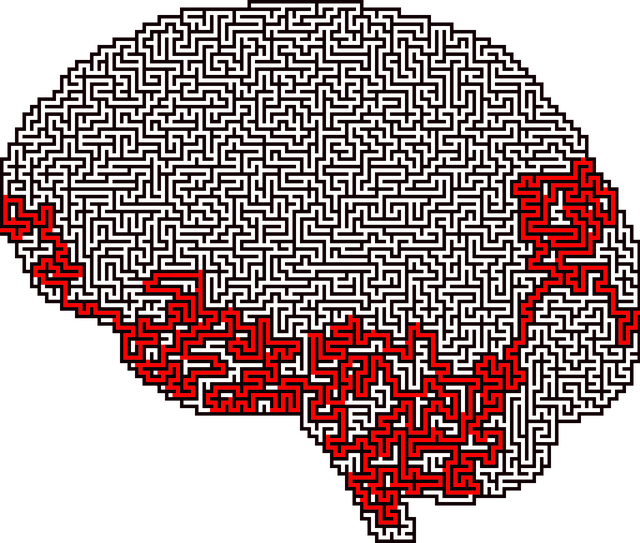Aurora ADD-ADHD Therapy emphasizes the vital role of risk assessment in mental health care, systematically evaluating emotional wellness risks to develop targeted preventive strategies. This proactive approach ensures a safe and supportive environment for effective healing and promotes mental wellness. By understanding risk assessment, therapists can confidently navigate complex situations, predict and address potential crises, manage high emotional workloads, and encourage positive thinking while mitigating stress and burnout risks. Their structured session plans, adaptive practices, and open communication foster client empowerment and security.
In today’s dynamic mental health landscape, risk assessment is paramount for professionals like those at Aurora ADD-ADHD Therapy. This article delves into the crucial aspect of understanding risk assessment within mental health practices, focusing specifically on the unique challenges faced by therapists treating Attention Deficit Disorder (ADD) and Attention Deficit Hyperactivity Disorder (ADHD). We explore key risks, offer insights into effective strategies for risk management, and provide practical guidance tailored to Aurora ADD-ADHD Therapy’s approach.
- Understanding Risk Assessment in Mental Health Practices
- Key Risks and Challenges Faced by ADD-ADHD Therapists
- Strategies for Effective Risk Management in Aurora ADD-ADHD Therapy
Understanding Risk Assessment in Mental Health Practices

In the realm of mental health care, risk assessment is a vital tool that helps professionals like those at Aurora ADD-ADHD Therapy identify and mitigate potential dangers within their practice settings. It involves a systematic process of evaluating risks to patients’ emotional wellness, enabling practitioners to implement preventive strategies tailored to individual needs. This proactive approach ensures that the therapeutic environment remains safe, fostering effective emotional healing processes for all clients.
Understanding risk assessment is crucial for mental health professionals as it allows them to navigate complex situations with confidence. By considering factors such as a patient’s history, current symptoms, and environmental influences, therapists can predict and address potential risks associated with therapy. This includes managing crises, preventing relapse, or identifying signs of self-harm—all while fostering an environment that promotes mental wellness.
Key Risks and Challenges Faced by ADD-ADHD Therapists

Mental health professionals specializing in Aurora ADD-ADHD therapy face unique challenges due to the complex nature of Attention Deficit Disorder (ADD) and Attention Deficit Hyperactivity Disorder (ADHD). One key risk is the potential for burnout, given the demanding nature of their work. Therapists often juggle intense emotional workloads, managing clients with varying levels of distress and impulsivity. The constant need for active listening, empathy, and strategic interventions can lead to significant stress.
Additionally, maintaining boundaries between professional and personal lives is crucial for emotional healing processes. Therapists must employ effective stress reduction methods, such as mindfulness techniques or self-care practices, to prevent burnout. Encouraging positive thinking among clients is another challenge, as it requires a delicate balance to ensure the therapist’s own mindset supports and enhances the therapeutic journey.
Strategies for Effective Risk Management in Aurora ADD-ADHD Therapy

Aurora ADD-ADHD Therapy offers a comprehensive approach to risk management, prioritizing the well-being of both clients and professionals. Effective strategies include structured session plans that cater to individual needs, ensuring a safe and supportive environment. By integrating techniques for self-esteem improvement, emotional regulation, and resilience building, therapists foster a sense of security and empowerment in their patients.
Regular monitoring and adaptive practices are key. Therapists should assess progress, identify potential triggers, and modify treatment plans accordingly. This proactive approach allows for swift intervention, minimizing risks associated with unmanaged symptoms. Moreover, fostering open communication between clients and professionals enables early detection of any concerning behaviors or emotional shifts, facilitating timely responses and enhancing overall risk mitigation in Aurora ADD-ADHD Therapy settings.
In conclusion, risk assessment is a vital component of mental health practice, especially for professionals specializing in ADD/ADHD therapy. By understanding and identifying potential risks, therapists in Aurora ADD-ADHD Therapy can implement effective strategies to manage and mitigate these challenges. This ensures a safer environment for both patients and practitioners, fostering successful therapeutic outcomes. Through a comprehensive approach to risk management, mental health professionals can enhance their practice and provide the best possible care.














